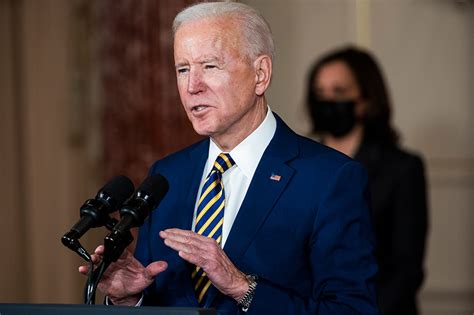A strike against the three major United States Automakers the next week could hurt the economy and undermine the president’s message on climate change and jobs. Moreover, President Joe Biden’s assertion that a strike won’t occur seems to be a minority view, with many political insiders and business leaders anticipating it will.

President of the United States – Joe Biden (Photo: politico)
Big 3 United States Automakers
According to Yahoo News, when their contracts with the Big 3 United States Automakers expired the following week, President Joe Biden officially stated that auto employees wouldn’t go on strike.
However, a person familiar with White House thinking claimed that in private, officials are “aware” that a strike is probable and have spent much of the summer negotiating with both parties in a labor issue that threatens to harm the economy and the president’s chances for reelection. The individual was provided anonymity in order to openly discuss a delicate subject.
For a president who has been outspokenly pro-union and has bet his 2024 campaign on his handling of the economy, this labor showdown has outsized political ramifications in contrast to the last United States Automakers strike, which lasted six weeks against General Motors in 2019. This time, UAW President Shawn Fain is raising the prospect of a simultaneous strike by the union against GM, Ford, and Stellantis, which would have a greater negative impact on the economy.
One of Biden’s most well-known policies is looming over the negotiations: his attempt to combat climate change and create U.S. manufacturing jobs through hundreds of billions of dollars in clean-energy spending is frustrating the UAW, which is demanding that workers share in the benefits from the government-subsidized shift to electric vehicles.
Fain has declined to support Biden’s reelection because she believes the government should have demanded higher pay and labor standards before funding initiatives like electric vehicle battery facilities.
READ ALSO: Harris County Commissioners Approve The Ballot For The $2.5B Harris Health Bond
United States Automakers Strike
As per the report of POLITICO, if Congress is unable to come to a stopgap budget agreement by September 30, the United States Automakers strike—which could start as soon as Thursday night—may also coincide with a shutdown of the federal government. Additionally, it would fuel the post-pandemic strike boom that has characterized much of the Biden administration, with contract conflicts already causing much of Hollywood to shut down and smaller walkouts occurring at private enterprises all over the nation.
Transportation Secretary Pete Buttigieg told POLITICO, “Of course, it’s a concern and something that has been closely watched.” From a government standpoint, we are in touch with the parties and pressing them to reach a resolution.
He also praised the United States Automakers Union and its significance in American history, echoing Biden’s recent remarks. The United States Automakers, according to Buttigieg, “is a huge part of what built the middle class.” We support collective bargaining, and I think things will turn out well in the end.
When asked about Biden’s remarks regarding the probability of a strike earlier this week, White House press secretary Karine Jean-Pierre responded that he is an “optimist” and urges “both sides to continue to talk.”
For the past two months, Gene Sperling, the White House’s point man on negotiations between the UAW and the Big 3 United States Automakers, has been in constant contact with both the union leadership and the companies. Additionally, he maintains communication with officials in Michigan, including Gov. Gretchen Whitmer and members of Congress.
According to some acquainted with White House officials’ views, their responsibility extends beyond merely keeping an eye on the negotiations but falls well short of meddling. The sources claimed that Biden’s advisers had occasionally attempted to mediate disputes between the automakers and UAW.

















































